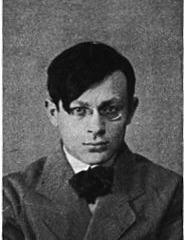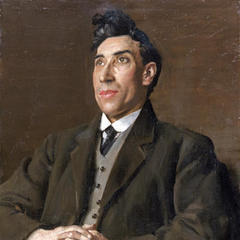John Milton Quotes - Page 24
John Milton, Thomas Keightley (1859). “Poems”, p.55
No man who knows aught, can be so stupid to deny that all men naturally were born free.
The Tenure of Kings and Magistrates (1649)
John Milton (1976). “The Portable Milton”, p.126, Penguin
John Milton, Henry John Todd (1852). “The Poetical Works of John Milton: With Notes of Various Authors; and with Some Account of the Life and Writings of Milton, Derived Principally from Original Documents in Her Majesty's State-paper Office”, p.139
'Paradise Lost' (1667) bk. 2, l. l. 226
Paradise Lost bk. 4, l. 110 (1667)
John Milton (1752). “Paradise Regain'd. A Poem, in Four Books. To which is Added Samson Agonistes: and Poems Upon Several Occasions. The Author John Milton”, p.534
And join with thee calm Peace and Quiet, Spare Fast, that oft with gods doth diet.
'Il Penseroso' (1645) l. 45
God, who oft descends to visit men Unseen, and through their habitations walks To mark their doings.
John Milton, Henry John Todd (1852). “The Poetical Works of John Milton: With Notes of Various Authors; and with Some Account of the Life and Writings of Milton, Derived Principally from Original Documents in Her Majesty's State-paper Office”, p.522
John Milton (1773). “The First Six Books of Milton's Paradise Lost: Rendered Into Grammatical Construction ... with Notes Grammatical, Geographical, Historical, Critical, and Explanatory. To which are Prefixed Remarks on Ellipsis and Transposition ...”, p.351
John Milton (1832). “The Poetical Works of John Milton”, p.34
For books are as meats and viands are; some of good, some of evil sub-stance.
John Milton (1859). “The prose works of John Milton”, p.173
Paradise Regained bk. 4, l. 240 (1671)
John Milton, Charles Dexter CLEVELAND (1853). “The Poetical Works of John Milton: with a Life of the Author; Preliminary Dissertations on Each Poem, Notes Critical and Explanatory ... and a Verbal Index. Edited by C. D. Cleveland”, p.323
'Paradise Lost' (1667) bk. 2, l. 907
Paradise Lost bk. 4, l. 73 (1667)
1634 Comus, A Mask, l.248-51.
'Samson Agonistes' (1671) l. 86
From haunted spring and dale Edg'd with poplar pale The parting genius is with sighing sent.
John Milton, Henry John Todd (1826). “The poetical works of John Milton: With notes of various authors”, p.21
Well observe The rule of Not too much, by temperance taught In what thou eat'st and drink'st.
John Milton (2003). “The Complete Poems and Major Prose”, p.445, Hackett Publishing







